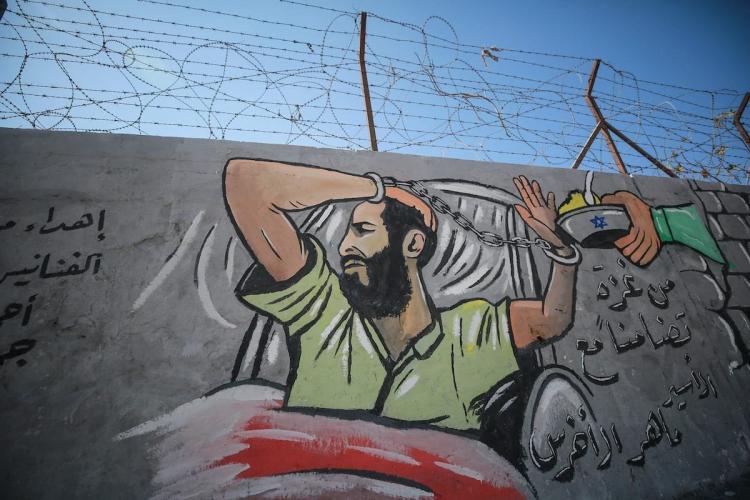Six Palestinian prisoners are still on hunger strike in protest at the Israeli policy of administrative detention, according to a Palestinian committee concerned with prisoners’ affairs on Saturday.
The Palestinian Commission for Detainees and Ex-Detainees Affairs said in a statement that the longest striking prisoner, Kayed al-Fasfous, began his hunger strike 86 days ago, protesting his continued detention.
The five other striking prisoners include Miqdad Qawasmeh, who has been on strike for 80 days, Alaa Al-Araj, who has refused food for 62 days, and Hisham Abu Hawash, who has been on hunger strike for 54 days, Rayek Bisharat, who continues his strike for 49 days, and Shadi Abu Aker, who has been on hunger strike for 46 days.
The commission's media advisor, Hassan Abd Rabbo, pointed out that the prisoner Kayed al-Fasfous, who is currently held in Barzilai Medical Center, may suffer a sudden health setback that can cause him a heart attack or paralysis.
Abd Rabbo also said that the prisoner Qawasmeh suffers different health problems and constant pains all over his body as he decided to continue his hunger strike in rejection of the Israeli decision to suspend his administrative detention without ordering his release.
For his part, the prisoner Al-Araj started suffering kidney problems and other health complications that forced him to use a wheelchair.
Abu Hawash, who is held in Ramla prison hospital, became unable to move after he stopped taking vitamins and drugs.
In this regard, member of Hamas Movement's political bureau Hussam Badran said that his group is following up the hunger strikers' case.
He pointed out that talks have been conducted with different parties including the Egyptians to intervene in the case of those on hunger strike in Israeli jails.
The policy of administrative detention allows the Israeli authorities to extend the arrest of a prisoner without charge or trial for an indefinite period of time.
An estimated 4,650 Palestinians are held in Israeli jails, including 200 children, 40 women, and 550 sick prisoners including cancer patients.







